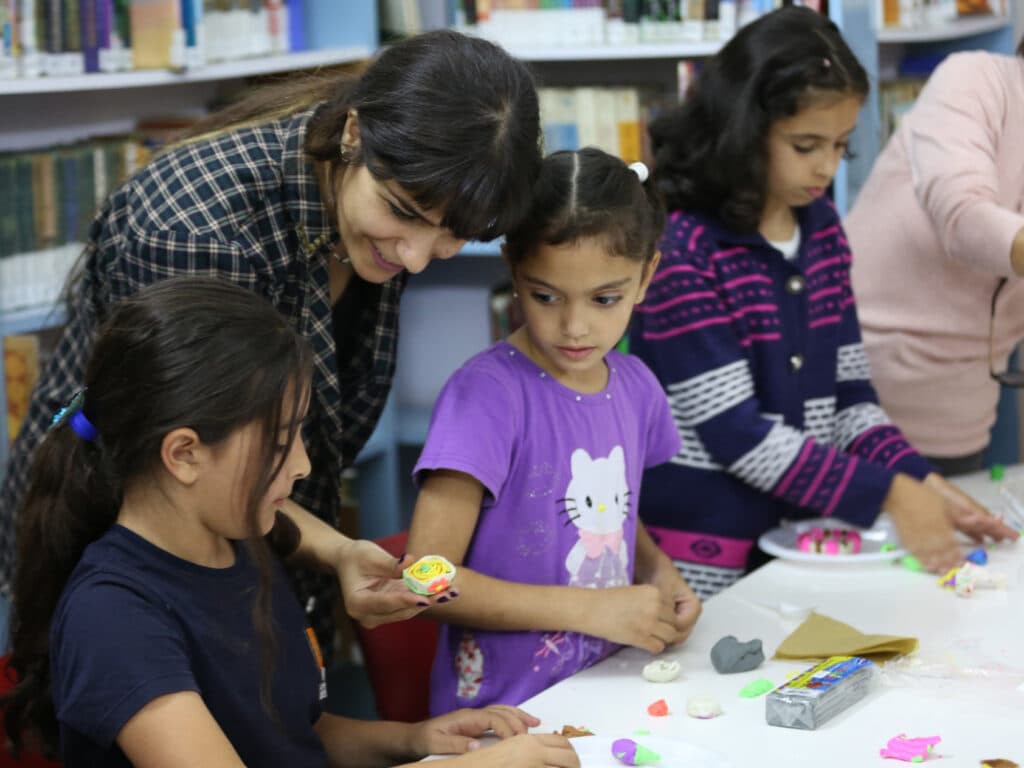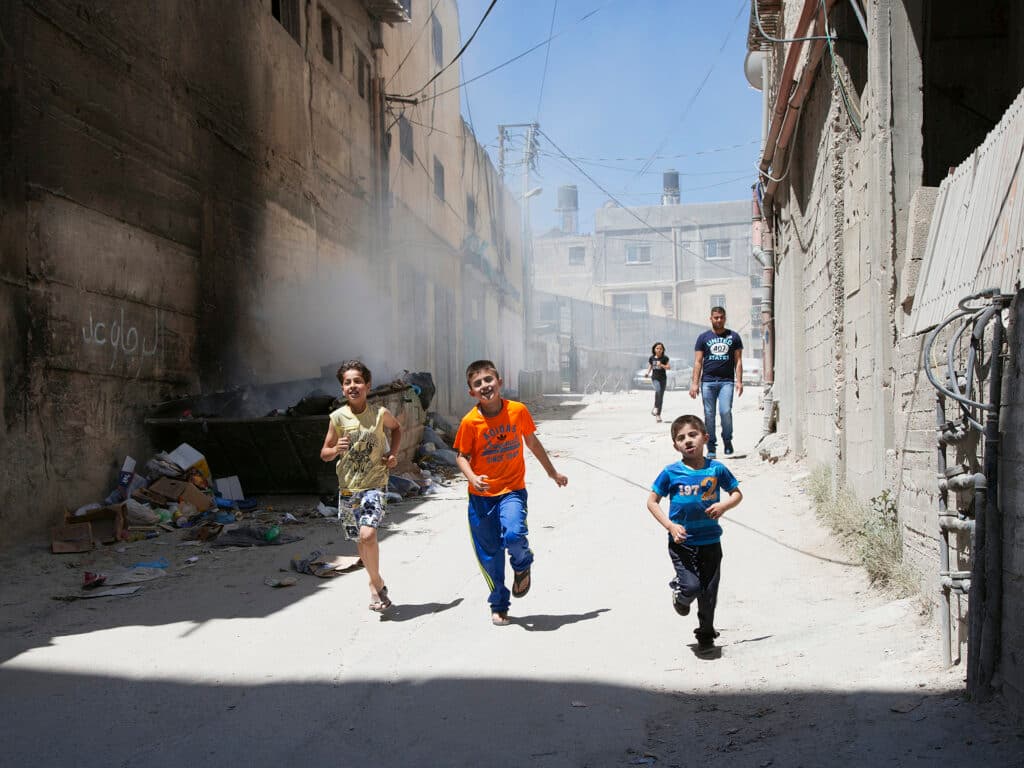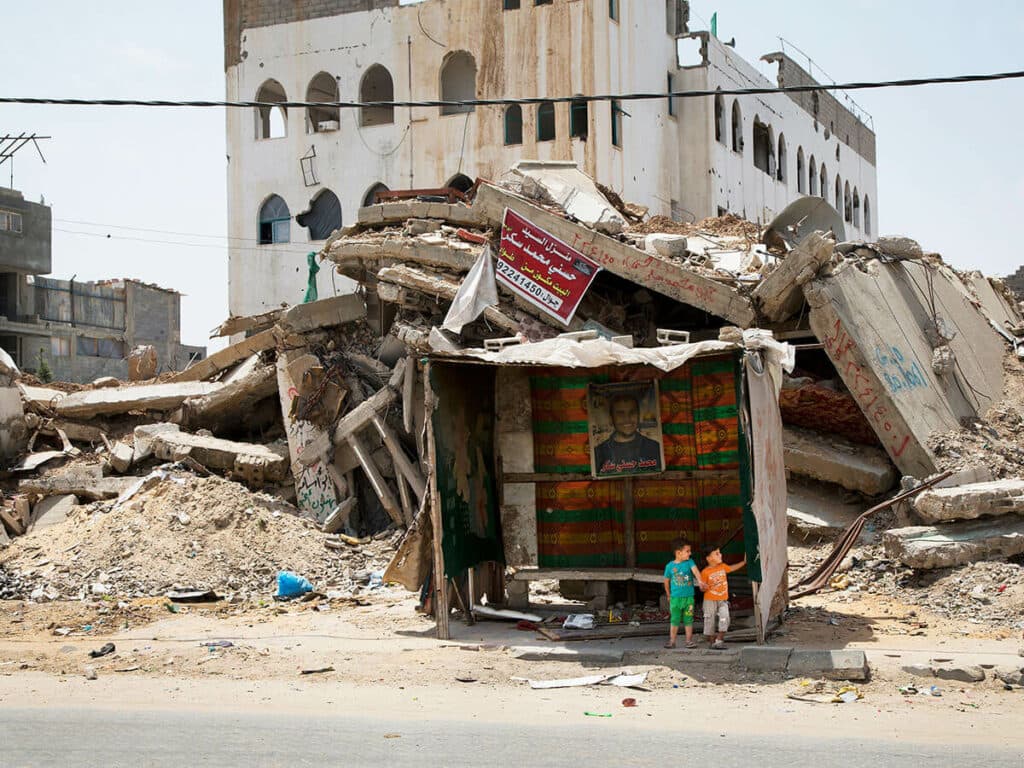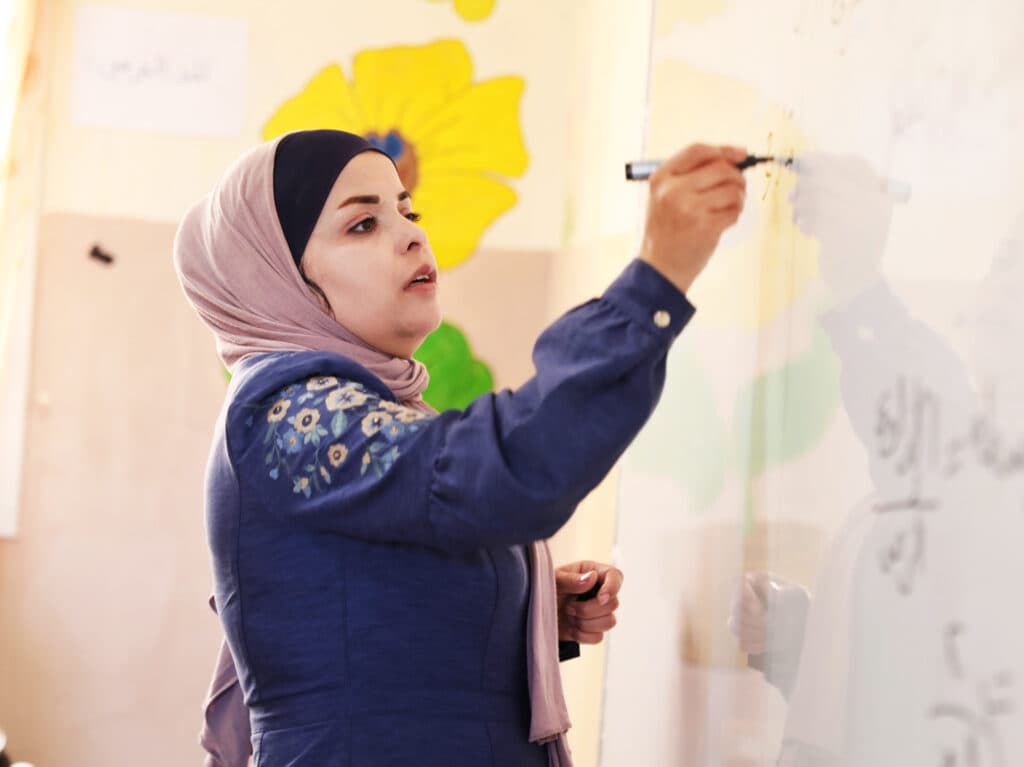
Palestine
The Israeli occupation of Palestine continues to have a devastating impact on Palestinian communities.
Ongoing Israel Occupation and Humanitarian Crisis in Palestine
Gaza Humanitarian Crisis
Since 7 October 2023, hundreds of thousands have been killed or injured in Gaza. The collapse of the healthcare system, widespread food insecurity, and mass displacement have left millions in urgent need of humanitarian aid. The blockade has severely restricted access to food, medicine, and fuel, worsening the crisis. Education has come to a halt for hundreds of thousands of students, and entire communities have been uprooted as infrastructure is destroyed.
West Bank Crisis
In the West Bank, tens of thousands have been displaced, with increasing restrictions on movement due to a growing number of checkpoints and ongoing settlement expansion. Violence and forced displacement are intensifying, contributing to the deteriorating humanitarian situation.

Strengthening Democracy, Human Rights, and Gender Justice
Diakonia's Palestine Civil Society Program (PCSP) Vision (2025+)
Our vision is a resilient Palestinian civil society that champions democracy, human rights, and gender justice, focusing on increasing youth and women's political and economic participation.
Palestinian Civil Society’s Contribution
- Empowering rights-holders to shape their own lives.
- Holding duty-bearers accountable.
- Building gender-just, democratic, and resilient societies.
Key Focus Areas
- Youth and Women’s Political and Economic Participation:
· Addressing challenges like high unemployment rates among youth and encouraging women's leadership and rights.
· Promoting active involvement in political, economic, and social spheres, particularly for youth and women. - Fostering Resilient and Inclusive Civil Society:
· Ensuring the inclusion of marginalized groups, including women, youth, and people with disabilities.
· Strengthening Palestinian civil society organizations (CSOs) to advocate for human rights and democratic reforms.
Palestinian Women's Participation in Politics
Palestinian women are significantly underrepresented in politics, particularly at senior levels. However, they make up about 21 percent of local councilors, mostly elected through quotas that ensure a minimum number of women are nominated and elected.
Program Objective
To strengthen Palestinian civil society organizations (CSOs) in promoting human rights, democracy, and gender justice.
Key Program Focus Areas
- Capacity Building: Enhancing the operational, financial, and advocacy capabilities of CSOs.
- Youth and Women Empowerment: Promoting active participation in all societal sectors.
- Human Rights & Gender Justice: Advancing the rights of marginalized groups, particularly women, youth, and individuals with disabilities
40 percent of Palestinians aged 15-24 are unemployed, with many living in poverty.
Economic Struggles
Ongoing violence and restrictions have severely affected the Palestinian economy, leading to widespread unemployment and poverty.
Diakonia’s Role in Palestine
Partnerships
Diakonia has formed partnerships with around 40 Palestinian and Israeli organizations, covering key areas such as democracy, human rights, social and economic justice, gender equality, and conflict resolution.
Program Focus
Diakonia's Palestine Civil Society Program (PCSP) works to empower rights-holders, enabling them to shape their own futures, hold duty-bearers accountable, and build gender-just, democratic, and resilient societies, where Palestinians can live with dignity.
Humanitarian Support
Diakonia, in partnership with local organizations, delivers vital humanitarian aid in Palestine, including winter clothes, hygiene kits, school supplies, and primary healthcare through mobile clinics. We address learning loss, promote youth empowerment, and support sustainable agriculture projects to improve food security.
Additionally, Diakonia provides education, technical support, and advocacy to integrate international humanitarian law into protection efforts in Gaza and the West Bank. Read more on the web page for the Diakonia International Humanitarian Law Centre.

Looking Ahead
Despite significant challenges, Palestinian civil society remains resilient. Programs that empower youth, women, and marginalized groups, while strengthening civil society organizations (CSOs), are essential for building a democratic, just, and prosperous future. Continued support is crucial to addressing socio-economic challenges, advancing human rights, and promoting gender justice in Palestine

Culture helps children to interpret the world around them
Reading, playing and telling stories teach children how to express themselves and better interpret the world, even when their world is hard to understand. In a library in Ramallah, story time becomes an outlet for children’s emotions.

The library is a second home
Since joining the activities at the Tamer Institute, 17 year-old Celine has got better at standing up for what she thinks – but also at listening to others and accepting their different opinions. The institute has become her safe place, where she can express herself without fear of being judged.


